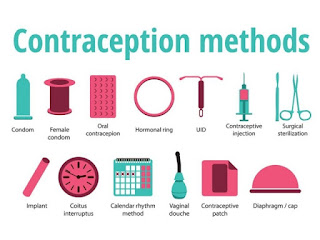©Scripps Media, Inc.
As a young adult you're taught that birth control is good for you when it comes to having sex. What you're not told though, are the side effects or even long-term effects of its many different forms.
Normally when people think about sex they instantly think about pregnancy and how to prevent themselves from having unplanned pregnancies. Since most people began to be sexually active between the ages of 15-18 year old, that's when they're usually first introduced to birth control. When young adults become sexually active and their parents usually take them to an OGBYN where the doctors usually say something like, "Birth control is used as a contraceptive that prevents you from getting pregnant during sex... If you're sexually active and not using birth control then nine times out of ten you'll probably end up pregnant." But with all the side effects and possible long term effects, is it really worth it? Have you done your research on birth control to see what harm it could do to your body? Birth control, also known as a contraception, is a method used to prevent pregnancy. The birth control method uses medicines, surgical procedures, as well as devices. There are about 15 different birth control methods that can be used to prevent sex, but the ones that are most common are those such as: the pill, surgical sterilization, IUD, injections, patches, implants, and vaginal rings.
Normally when people think about sex they instantly think about pregnancy and how to prevent themselves from having unplanned pregnancies. Since most people began to be sexually active between the ages of 15-18 year old, that's when they're usually first introduced to birth control. When young adults become sexually active and their parents usually take them to an OGBYN where the doctors usually say something like, "Birth control is used as a contraceptive that prevents you from getting pregnant during sex... If you're sexually active and not using birth control then nine times out of ten you'll probably end up pregnant." But with all the side effects and possible long term effects, is it really worth it? Have you done your research on birth control to see what harm it could do to your body? Birth control, also known as a contraception, is a method used to prevent pregnancy. The birth control method uses medicines, surgical procedures, as well as devices. There are about 15 different birth control methods that can be used to prevent sex, but the ones that are most common are those such as: the pill, surgical sterilization, IUD, injections, patches, implants, and vaginal rings.
©Marygraceconnelly
15 Types of Birth Control
Birth Control Side Effects Explained


No comments:
Post a Comment